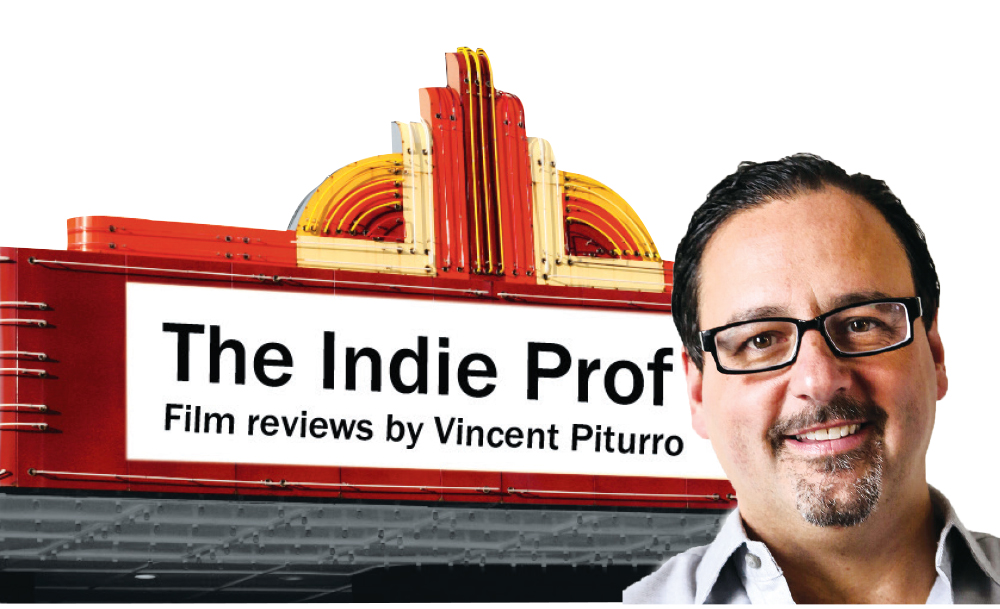 Each month, the Indie Prof reviews a current film in the theater and second film or series available on DVD or instant-streaming service. Follow “Indie Prof” on Facebook for updates about film events and more reviews.
Each month, the Indie Prof reviews a current film in the theater and second film or series available on DVD or instant-streaming service. Follow “Indie Prof” on Facebook for updates about film events and more reviews.
 Roma (2018—Netflix)
Roma (2018—Netflix)
This is one of the most stunning movies to come out in years. The title Roma makes it sound like an Italian production (or that at least it would be set in Italy), but it actually refers to the middle-class neighborhood in Mexico City where writer/director Alfonso Cuarón grew up. He looks back on his youth with wonder, poetry, and a reality reminiscent of the best of cinema history. This is must-see moviemaking of the highest quality.
In 1948, just after the end of WWII, one of the most beautiful film movements was born. Known as Italian Neorealism, it focused on the struggles of everyday people. It would become one of the most influential film movements around the world for many years; it was a breath of fresh air and a corrective to the too-perfect Hollywood cinema of the period. There were no easy resolutions nor simple good/bad people characterizations. In the wake of WWII, many people around the world were struggling, and Neorealism examined those struggles.
Alfonso Cuarón now gives us Roma. He tells the story of a family in Mexico City in the early 1970s. Everything we need to know is in the first few frames of the film: a dog sits in a driveway, a maid sweeps the alley, we hear a plane go by in the distance, the maid cleans the house as the kids and parents move about. Nothing is overly explained; Cuarón’s story is his own and he tells it with the nostalgia of knowing. The details are succinct. The touches are impeccable. We are less watching a movie than engaging with memory. It is the most beautiful, masterful, and epic film that we have been given in years. That may sound like hyperbole, but it is true. There are few artists who have the guts to tell such personal stories. Cuarón’s images are imbued with a touch of reality and beauty that we rarely see. If nothing else, Cuarón will most certainly win his second Best Director at the Oscars this year (not yet held by press time).
The story is simple: the family at the center is falling apart, the father leaves, the mother struggles with being a single parent, and we view most of it through the eyes of the maid (played by wonderful newcomer Yalitza Aparicio). That description doesn’t give the film justice, however. To watch the film is to feel the film, and I bring up Italian Neorealism because it is not only stylistically similar, it is also emotionally similar. Cuarón gives his own explanation of the film as thus: “It’s a year in the life of a family and a country … For me, this film has always been difficult to describe. It was a process of following the character of Cleo [the maid to a middle-class family, based on his own] and through her exploring wounds that were personal—family wounds. Then I realized these were wounds that I shared with many people in Mexico. And then I came to the conclusion that they are wounds shared by humanity.” That humanity is pure Neorealism (if you think about the great films from the era, such as Bicycle Thieves or Rome, Open City).
Cuarón not only wrote and directed the film, he also shot it and edited it as well. I am guessing he probably also baked the cookies for the crew. This was his life and his film, and he spent a few years making it. It is easy to see his painstaking work throughout every aspect of the filmmaking—from the mise-en-scéne to the cinematography to the editing. The director of The Prisoner of Azkaban and Gravity has turned into one of the greatest directors of our era. Think about Hitchcock making Vertigo, think about Kubrick making 2001 A Space Odyssey, or think about Federico Fellini making 8 1/2 . We are watching one of the great directors at the height of his powers, and what a joy it is to watch!
The historical context of the film is important and prevalent, but it is never wallpapered. Cuarón has talked about the race, gender, and class issues of the period, but it always surrounds the family. He wants you to know when something important has happened outside the frame, but he lets you feel it for yourself. The great director Fellini said his job was to take you to the train station by the end of a film—and where you chose to go from there was up to you. Cuarón leaves us with so many options, everyone will be satisfied with their journey.
It is currently available on Netflix after (a very short) theatrical run.
You will enjoy this film if you liked Bicycle Thieves, Rome, Open City, and/or Nights of Cabiria.
Vincent Piturro, Ph.D., is an associate professor of Cinema Studies at Metropolitan State University of Denver. He can be reached at vpiturro@msudenver.edu.




0 Comments